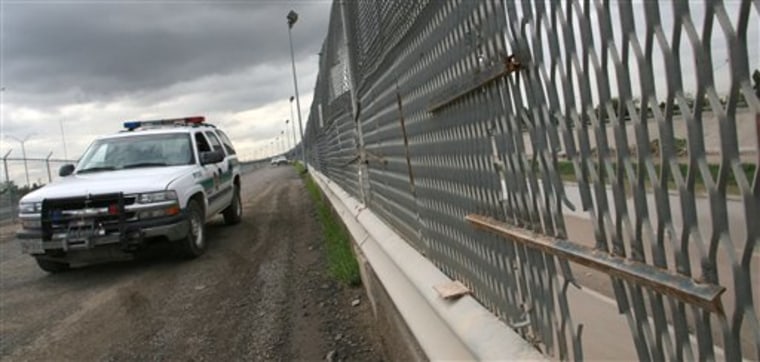Farmers and other employers who rely heavily on immigrant labor said Friday that they could be driven out of business by the Bush administration’s plans to crack down on workers whose Social Security numbers do not match their names, and businesses that hire them.
Administration officials said the stepped-up enforcement would begin in 30 days.
“Everyone’s very anxious,” said Paul Schlegel, director of public policy for the American Farm Bureau Federation. “We’re heading into the busiest time of the year for agriculture, so you’re going to see a lot of worry from farmers and employers about how you deal with this.”
The industry group, which represents 75 percent of U.S. farmers, estimates at least half the nation’s 1 million farm workers do not have valid Social Security numbers. Losing them would devastate the industry, particularly fruit and vegetable growers, which rely heavily on manual labor, farmers said.
Other businesses that count on large numbers of illegal workers include construction, janitorial and landscaping companies, and hotels and restaurants.
“We are concerned that the new regulations will result in employers in numerous industries having to let workers go as the economy is facing an increasingly tight labor market,” said John Gay of the National Restaurant Association.
Homeland Security Secretary Michael Chertoff and Commerce Secretary Carlos Gutierrez said they were forced to beef up enforcement of existing laws after Congress failed to pass a comprehensive immigration-reform bill.
“We’re going as far as we possibly can without Congress acting,” White House spokeswoman Dana Perino said.
'It'll just shut us down'
Among other things, employers will now be required to fire employees who are unable to clear up problems with their Social Security numbers within 90 days after being notified. Employers who fail to comply could face criminal penalties.
Recognizing the crackdown could hurt some industries, particularly agriculture, Gutierrez said the Labor Department will try to make existing temporary worker programs easier to use and more efficient.
Chertoff also said he will try to use the department’s regulatory authority to raise fines on employers by about 25 percent. Current fines are so modest that some companies consider them a cost of doing business, the agency said.
“It’ll just shut us down,” said Manuel Cunha, a citrus grower who heads the Nisei Farmers League, a farming group in California’s San Joaquin Valley, the nation’s most productive region for fruits and vegetables. “It’ll just be over if they start coming in here and busting employers. The food chain would fall apart.”
Illegal immigrants often give made-up numbers when applying for jobs, though honest mistakes such as the misspelling of a name can also cause problems. Employers say it can take weeks to clear up discrepancies.
“This the stupidest thing our government could do,” Cunha said. “They’re worried about terrorists, but I’ve never heard of a farmworker walking across the Arizona desert with a nuke strapped across his back.”
Bill Hammond, a member of the Texas Employers for Immigration Reform and the Texas Association of Business, predicted the enforcement would hurt his state’s agricultural, hotel and restaurant industries.
“We are deeply disappointed in the administration’s decision to punish the American economy because Congress has failed to act,” said Hammond, whose group is considered a Republican ally.
Unions react with anger
Business operators with large numbers of immigrant employees are wondering how to bring their work force into compliance without interrupting production.
“Employers want to obey the law,” said Mike Stuart, president of the Florida Fruit and Vegetable Association, which represents more than 200 farmers. “The question is whether they have the tools to continue operation and obey the law at the same time. That’s the Catch-22.”
Conservative groups lauded the move, saying it would be welcomed by a population tired of watching illegal immigrants and their employers go unchallenged.
“We wish they had done this earlier, but even at this late stage they have an opportunity to regain the confidence and support of the American public,” said Dan Stein, president of Federation for American Immigration Reform.
But unions representing immigrant-heavy work forces reacted with anger, including the Service Employees International Union, with 1.9 million members in janitorial and security jobs, and nursing homes and home care.
Eliseo Medina, the union’s executive vice president, said the Bush administration was trying to score cheap political points after failing to win support for comprehensive immigration reform.
“The proposed new regulations target people who baby-sit our children, who care for our grandparents, who pick and prepare our food,” he said in a statement. “These proposals will intensify a wave of enforcement strategies that have already failed.”
